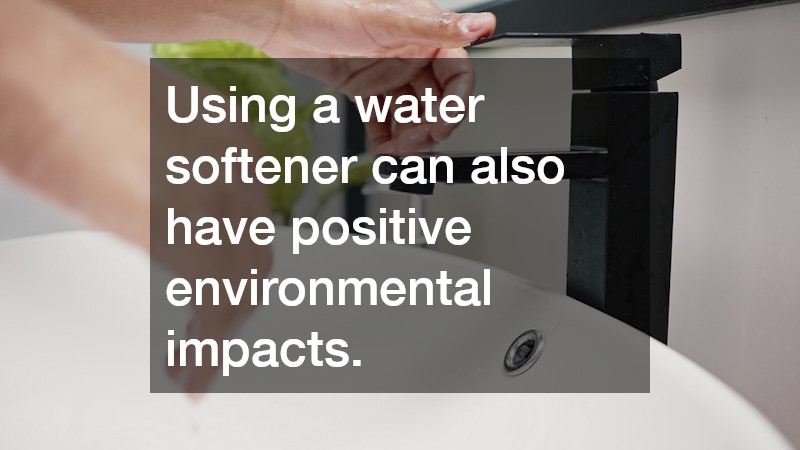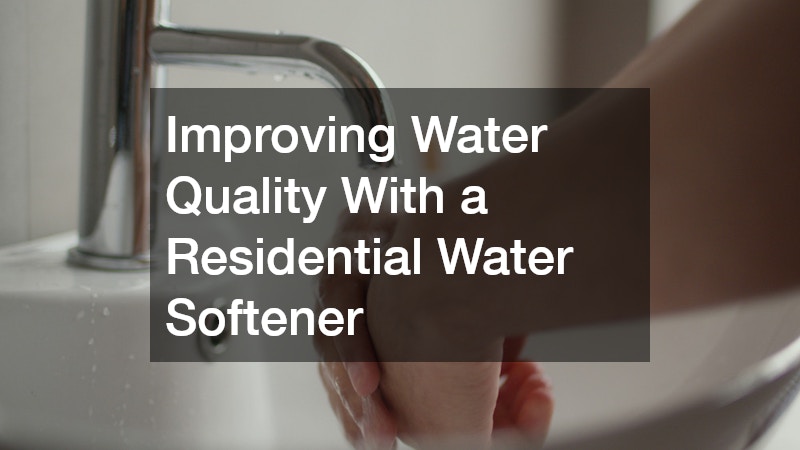Clean, soft water is a cornerstone of a healthy and efficient home. Many households struggle with hard water, which contains high levels of calcium and magnesium. Over time, hard water can leave deposits on plumbing, reduce the efficiency of appliances, and cause skin and hair issues for family members. One of the most effective ways to address these problems is by investing in a residential water softener. This system not only improves water quality but also protects your home’s plumbing and appliances while enhancing daily life.
Understanding the Impact of Hard Water
Hard water may not pose serious health risks, but it can create numerous challenges for homeowners. Limescale buildup on faucets, showerheads, and inside pipes reduces water flow and can eventually lead to costly repairs. Appliances such as dishwashers, washing machines, and water heaters work harder when exposed to hard water, which can shorten their lifespan and increase energy costs.
Beyond plumbing and appliance concerns, hard water affects everyday tasks. Laundry may feel stiff and dingy, soap may not lather properly, and hair and skin can become dry or irritated. By understanding these effects, homeowners can see the value of implementing solutions that improve water quality and create a more comfortable living environment.
How a Water Softener Works
A water softener works by removing minerals like calcium and magnesium from the water supply. Most systems use a process called ion exchange, where hard minerals are replaced with sodium or potassium ions. This process not only reduces limescale formation but also makes water more compatible with soaps, detergents, and cleaning agents.
The benefits of softened water are immediately noticeable. Dishes come out cleaner without spots, laundry feels softer, and showers leave skin and hair feeling smooth. Over time, the reduced buildup on plumbing and appliances lowers maintenance needs, prevents premature failure, and can even decrease energy bills.
Choosing the Right System for Your Home
Selecting the right water softener for your household depends on water usage, water hardness levels, and the size of your home. Some systems are compact, ideal for smaller homes or apartments, while larger models are designed to handle high water demand in bigger households.
Homeowners should also consider factors such as salt-based versus salt-free systems, regeneration methods, and additional features like filtration or digital monitoring. Understanding these options ensures that the chosen system delivers optimal performance and meets your family’s needs efficiently.
Installation and Maintenance
Proper installation is essential for a water softener to function effectively. Many homeowners opt for professional installation to ensure the system is correctly connected to the main water supply and set up according to manufacturer guidelines. Once installed, routine maintenance keeps the system running smoothly.
Maintenance generally includes checking salt levels, cleaning the brine tank, and occasionally flushing the system to prevent buildup. Following these guidelines can extend the life of the system and maintain the quality of softened water throughout the home.
Protecting Plumbing and Appliances
One of the most significant advantages of using a water softener is its ability to protect your home’s plumbing and appliances. By preventing limescale accumulation, pipes remain clear, and water flow is maintained. Appliances such as water heaters, dishwashers, and washing machines operate more efficiently and require fewer repairs.
The long-term savings from reduced maintenance, fewer appliance replacements, and lower energy bills make investing in a residential water softener a financially wise decision. Homeowners often find that the initial investment pays for itself over time through these cost-saving benefits.
Health and Lifestyle Benefits
Softened water also contributes to a more comfortable and healthier lifestyle. Skin feels smoother, hair is easier to manage, and cleaning chores are simplified. Many people notice that soap and shampoo lather better, reducing the amount of product needed for daily use.
For households with children or individuals with sensitive skin, these improvements can make a noticeable difference. Additionally, drinking water that is free from excess minerals may taste better and be easier to digest, enhancing overall well-being for the entire family.
Environmental Considerations
Using a water softener can also have positive environmental impacts. When appliances operate more efficiently, they consume less energy, reducing household energy consumption. Less soap and detergent are needed for cleaning, which decreases chemical runoff into local waterways. By extending the lifespan of appliances, homeowners also reduce waste and the environmental footprint associated with replacing major household equipment.
Investing in a residential water softener is a practical and effective way to improve water quality throughout your home. From protecting plumbing and appliances to enhancing daily comfort and reducing energy consumption, the benefits extend far beyond simply softening water. Homeowners who implement a water softening system often notice immediate improvements in laundry, bathing, and household chores, while also enjoying long-term financial savings and environmental benefits.
Whether you are dealing with hard water challenges or looking to maintain a modern, efficient home, a residential water softener is a valuable addition that supports both lifestyle and household management. By choosing the right system and maintaining it properly, you can enjoy cleaner, softer water and a more comfortable, cost-effective living environment for years to come.












